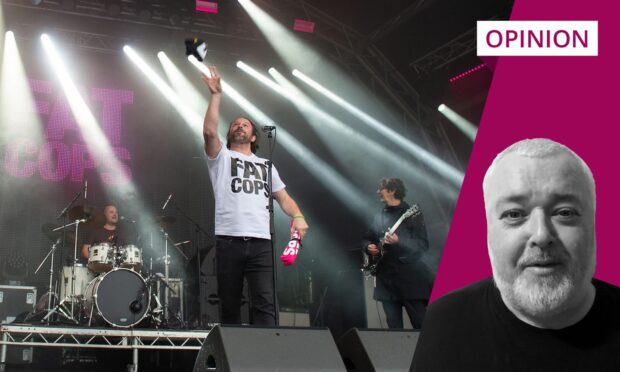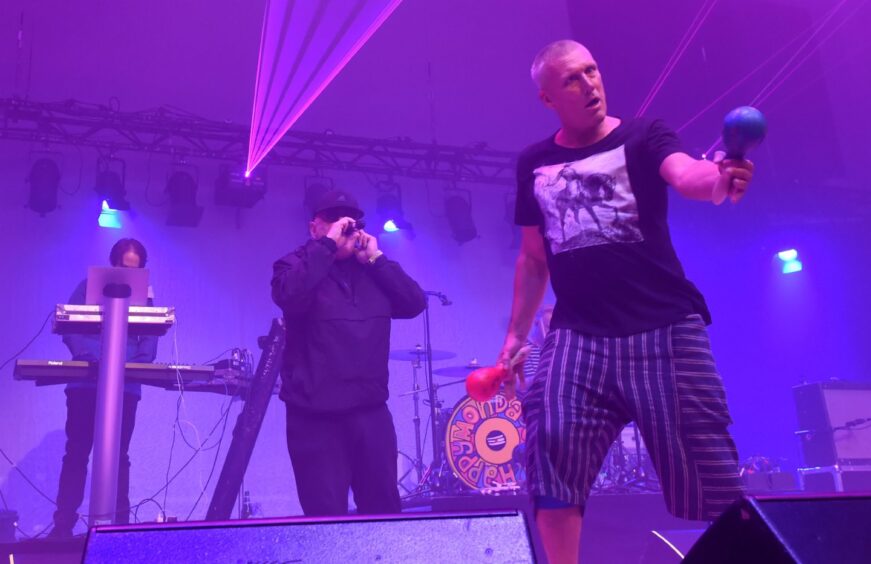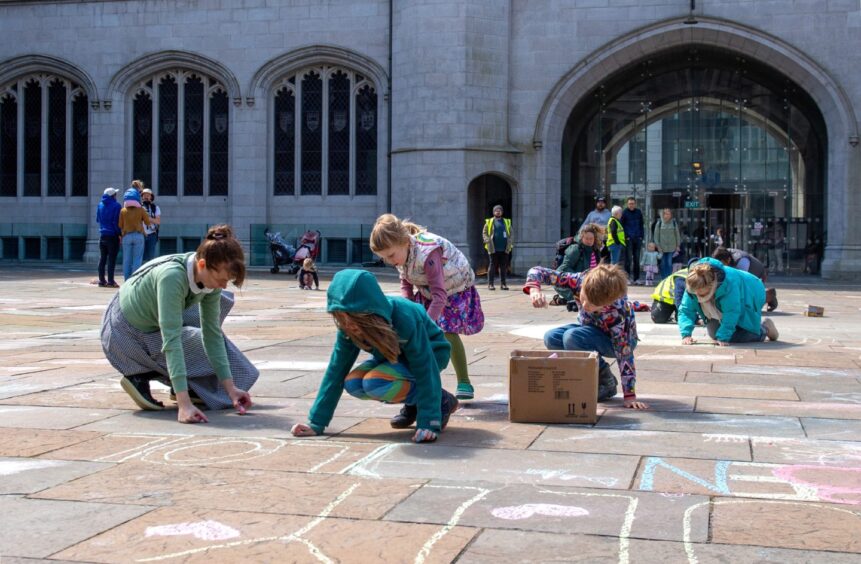At 7.45pm on the evening of October 24, 2019, trembling with terror, I and five others took to the stage in Aberdeen’s Music Hall.
The lights were blinding and the crowd sparse. As I strapped my guitar over my shoulder, I fought the urge to throw up.
And then the drummer clicked his sticks and I was off, playing the opening riff to a song by the name of “Hot Tub” by my then band, Fat Cops.
Our frontman – my fellow Press and Journal columnist Chris Deerin – began singing our hymn of midlife crisis and, to my astonishment, people started moving forward.
I’d used a music business contact to blag us a place as the opening act on Happy Mondays’ greatest hits tour and now it was real. And it was absolutely thrilling.
We were so lucky. A bunch of ageing music fans finally living a teenage dream, connecting with strangers through the racket we were making.
The creative act – whether it’s writing, making music, baking – is good for us.
We don’t have to be any good at it to enjoy it. Simply engaging with a creative act is, in itself, a wonderful thing. And it doesn’t have to be difficult for us to benefit. Feeling stressed? Bang a drum. See?
But for some – the truly gifted, the strangely talented – the creative impulse isn’t just positive, it’s overwhelming.
Having known a few artists over the years, I’m not certain they’d have chosen their talents.
Their lives are generally insecure. If they could suppress their creative urges, they might, especially after a particularly lean year.
Thank goodness, however, that they have found ways of living while making their art.
After all, supporting an artist in his or her work is not only beneficial to that individual but to all of us.
I have always been supportive of public funding of the arts
That’s why I’ve always been completely behind public-funding of the arts. Not all great art is commercially successful. Indeed, once you apply financial value as a metric of artistic success, you’re not really talking about art.
Whenever I feel the urge to sneer or snipe at a grant-funded project, I remind myself that’s a good thing. Imagine a world where the only art funded by governments was that approved by the majority.
Art doesn’t exist in isolation. Indeed, it is at its most powerful when it connects us all, whether that’s a bunch of slightly breathless men on a stage in Aberdeen or a lone teenager in a bedroom in Banchory, discovering a favourite novelist, musician or painter and, through an emotional connection trying to understand their place in the world.
Art is good for us. It lifts and consoles and once we accept it is neither foolish nor pretentious to feel those are things of real value, the idea of public funding of creative work becomes all the more appealing.
Ensuring there is space for creative people to try – regardless of whether they might succeed or fail – to achieve something new is the mental health equivalent of putting fluoride in the water. It does us all good.
Creative Scotland’s first responsibility is to support artists
So the decision by the leadership team at Creative Scotland to cut £6.6million in funding for new arts projects is devastating.
The organisation blames the Scottish Government and it is certainly true that ministers released a smaller grant this year but it was the decision of management at Creative Scotland not to absorb a red cent of that money (those pension funds won’t protect themselves).
And so while the talentless, puffed-up gatekeepers retain their lifestyles, struggling new artists are abandoned.
Right now, across Scotland, there are countless young people, vibrating with creativity eager to explore their talents. Those artists may never realise their ambition to make a living out of art. That will be a tragedy for us all.
For creative people in isolated areas, life is even harder. Without strong support networks, trying to make a life in the arts is doubly difficult.
The practical support of small grants allows them to create – and us to experience – art that would otherwise never have escaped the walls of their minds.
Across the north of Scotland, there are artists struggling to get by. It is in all of our good to support them.
Sadly, Creative Scotland increasingly looks like it exists to wreck rather than support the dreams of talented creative people.
Euan McColm is a regular columnist for various Scottish newspapers



Conversation